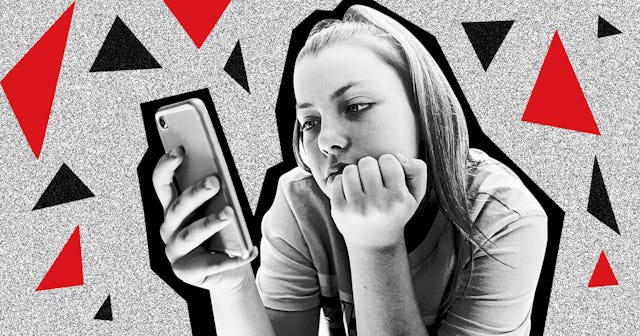Bullies Don't Stop Bullying During The Quarantine -- They Just Do It Online

Is your teen being bullied?
If I asked this question before the days of smart devices, email and social media, your answer would likely be “absolutely not.” You would be able to screen any calls coming into your home and protect your child from bullying. However, this is not the case today.
Unfortunately, it’s much harder for teens to escape bullying unless they choose to unplug completely — and what teen is going to do that, especially now? Cyberbullying can be persistent, either with non-stop harassing text messages or with frequent hurtful, threatening, or humiliating social media posts. For a teenager experiencing cyberbullying, home no longer feels like a safe place, even during a quarantine.
While some bullying can be very blatant and obvious, other forms can be subtle, yet still cause victims significant pain. An example of this is when a teen posts comments or a picture about a fun time that people had, and intentionally leaves someone out to make sure they know they were excluded. Those posting the picture or comment are doing it with the intent of hurting the individual who was not included. The bully may also make rude, insulting or negative comments about their victim, without actually saying who they are talking about. They say enough so their victim, plus anyone else reading the comments, knows who they are talking about — even though they never actually use their victim’s name.
Additionally, bullying can come in the form of posting personal information about someone. This could be posting their address, something they told someone in confidence, or a humiliating photo or video. And once it’s out there, it is usually out there forever. It’s easier for bullies to be relentless when they can hide behind a screen and not have to say or do something to their victim in person.
There has been talk about having the “like” button removed from social media because so many people (both teens and adults) are overly focused on how many “likes” each picture or post receives. Teens are often very focused on this, and bullies use this in two ways to hurt their victims. One way this is used is for a bully or a group to purposely not “like” content posted by their victim. Another way this is used is for a bully to “like” or comment on everything posted by their victim. This is very intimidating for victims of bullying because they are being given the message that their bully is watching everything they are doing online.
Finally, in an effort to bond with and feel close with others, teens will sometimes share their social media passwords with people they believe to be friends. Sometimes these “friends” share this information with a bully, or they use it themselves to “hack” a social media account. They then have control of that account and can post as though they are the victim. This can be scary, humiliating, and have long-term repercussions for victims.
So what can parents do to help?
Listen and validate.
If your teen feels victimized and wants to talk about what is happening, make yourself available. Even if you don’t fully understand why they are so upset about something, validate what they are feeling. This will encourage them to share more with you and will also help them process through their emotions.
Stress that they should never share their password.
Teens may want to share their password with a “friend,” who later turns against them and hacks their account. Teens should be reminded many times that they should not ever give their passwords to anyone other than you, their parent or caregiver.
Block the bullies.
This seems like an obvious solution. However, many teens don’t want to do this because even though they’re upset by what someone is posting; they would rather know what is being posted than not know. Educate your teen that if they completely disengage, the bully loses all their power. If your teen does not respond to and is no longer paying attention to their cyber-bully during quarantine, their bully will lose interest.
Report the abuse.
Take screenshots and report the abuse to the appropriate online platform as well as to your teen’s school, if appropriate. If the bullying is focused on someone’s religion, race, gender, sexual orientation or a disability, it could be in violation of your state’s discrimination laws and become a legal matter.
Encourage your teen to stand up for others.
Talk to your teen about what to do if they see someone being bullied online. Encourage them to refrain from engaging in bullying and to stand up for their peers.
Install parental controls.
This will likely not go over well with older children, but for younger teens who are just starting out on social media, it is a great way to monitor your teen’s online experience so that you can guide them early on.
Encourage activities that foster self-esteem.
Teens with good self-esteem are less likely to be victims of bullying, and are also less likely to become bullies.
Get professional support if needed.
Teens who have experienced extreme and/or prolonged bullying have been living in a state of chronic stress, and in many cases, fear. Cyberbullying can also cause both anxiety and depression. If you are concerned that your teen is experiencing any of these concerns, seek out a mental health professional who can support both you and your teen. Safekids.com also has a comprehensive list of online resources for parents and kids who are victims of cyberbullying.
Even if your teen isn’t in a brick-and-mortar school right now, that doesn’t mean they’re safe from the predatory behaviors of bullies. But by keeping an eye on your kids’ online (and real life) behavior, you can help make sure that cyberbullying is one less thing they have to worry about these days.